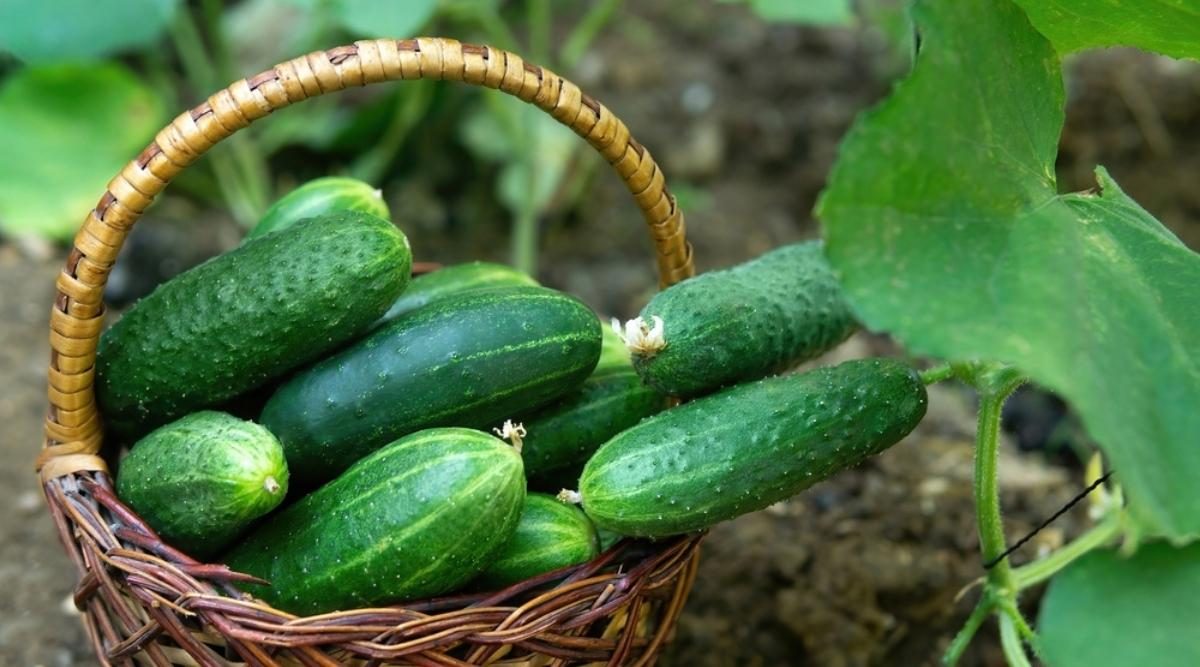

Articles
What To Do With Cucumbers From The Garden
Modified: May 6, 2024
Learn creative ways to use cucumbers from your garden in your gardening adventures. Discover exciting recipes, pickling techniques, and more for a flavorful harvest.
(Many of the links in this article redirect to a specific reviewed product. Your purchase of these products through affiliate links helps to generate commission for Storables.com, at no extra cost. Learn more)
Introduction
Welcome to the wonderful world of gardening! There’s something truly satisfying about growing your own food, and one vegetable that thrives in many garden settings is the humble cucumber. Whether you are a seasoned gardener or just starting out, cucumbers are a fantastic addition to any garden. Not only are they relatively easy to grow, but they also offer a plethora of benefits that go beyond their refreshing taste.
In this article, we will explore the various benefits of growing cucumbers in your garden, discuss how to properly harvest and store freshly picked cucumbers, and provide you with some delicious recipes to make the most of your cucumber bounty. We will also explore how to make homemade pickles and share ideas on what to do with the excess cucumbers to ensure they do not go to waste.
So, grab your gardening gloves and let’s dive into the world of cucumbers, where you’ll learn how to transform these green gems into delightful culinary creations.
Key Takeaways:
- Growing cucumbers in your garden not only provides fresh and flavorful produce, but also offers numerous health benefits, high yield, and a sustainable, economical alternative to store-bought options.
- Harvesting, storing, and sharing excess cucumbers can elevate your gardening experience, allowing you to enjoy a variety of culinary creations while fostering a sense of community and generosity.
Read more: How To Grow Cucumbers In Containers
Benefits of Growing Cucumbers in your Garden
Growing cucumbers in your garden provides numerous benefits that extend beyond the delicious crunch they add to your salads and sandwiches. Here are some notable advantages:
- Freshness and Flavor: When you grow cucumbers in your own garden, you have the advantage of harvesting them at the peak of freshness. Store-bought cucumbers often lose their taste and crispness during transportation and storage, but homegrown cucumbers offer unmatched flavor straight from the vine.
- Nutritional Value: Cucumbers are packed with essential nutrients. They are rich in vitamins such as vitamin K, vitamin C, and potassium. Additionally, cucumbers are low in calories and cholesterol, making them a healthy and refreshing choice for your meals.
- Hydration: Did you know that cucumbers are made up of about 96% water? Eating cucumbers is a delicious way to stay hydrated, especially during hot summer months. Incorporating cucumbers into your diet can help replenish your body’s water content and keep you feeling refreshed.
- High Yield: Cucumber plants are known for their productivity. With proper care and maintenance, a single cucumber plant can yield a large quantity of cucumbers. This means you’ll have an abundant supply of fresh cucumbers throughout the growing season.
- Great for Companion Planting: Cucumbers are excellent companion plants for many other vegetables, including tomatoes and lettuce. The sprawling vine of cucumbers provides shade and helps prevent soil erosion, while the flowers attract pollinators to your garden. By planting cucumbers alongside other vegetables, you can create a diverse, thriving garden ecosystem.
- Economical Alternative: Growing your own cucumbers can help you save money. Instead of purchasing cucumbers from the supermarket, you can enjoy the satisfaction of harvesting your own supply. Plus, you’ll reduce packaging waste and the carbon footprint associated with transportation.
With these benefits in mind, it’s clear why growing cucumbers in your garden is a fantastic choice. Not only do you get to enjoy the taste and nutritional value of homegrown cucumbers, but you also reap the rewards of a thriving garden ecosystem and sustainable living.
Harvesting Cucumbers
Harvesting cucumbers at the right time is crucial to ensure optimal taste and texture. Here are some guidelines to help you harvest your cucumbers properly:
- Check the Size: Cucumbers should be harvested when they reach the desired size for the variety you are growing. Generally, slicing cucumbers are best picked when they are around 6-8 inches in length, while pickling cucumbers are harvested when they are 2-4 inches long.
- Inspect the Color: The color of the cucumber skin is also important. Most cucumber varieties have a dark green color when fully ripe. However, some specific varieties may have light green or even yellow skins when ripe. Refer to the seed packet or plant tag for specific information about the variety you are growing.
- Use Pruning Shears or Scissors: To harvest your cucumbers, use clean pruning shears or scissors. Avoid pulling the cucumbers off the vine by hand, as this can damage both the fruit and the plant.
- Cut the Stem: When harvesting a cucumber, make a clean cut just above the stem using your pruning shears or scissors. Leave a small portion of the stem attached to the cucumber to enhance their shelf life.
- Harvest Frequently: Cucumber plants are known for their rapid fruit production. To encourage continuous harvest, check your plants regularly and harvest cucumbers as soon as they reach the desired size, even if you don’t plan to use them immediately. This will help the plant focus its energy on producing more cucumbers.
- Harvest in the Morning: It’s best to harvest cucumbers in the morning when the temperatures are cooler. This helps retain the freshness and crispness of the cucumbers. If you must harvest in the afternoon, choose the cooler part of the day to avoid exposing them to excessive heat.
By following these guidelines, you can ensure that your cucumbers are harvested at the peak of their quality. Remember, freshly picked cucumbers are a true delight, and incorporating them into your meals will elevate their taste and nutritional value.
Storing Freshly Harvested Cucumbers
Proper storage is essential to maintain the freshness and flavor of freshly harvested cucumbers. Here are some tips on how to store your cucumbers:
- Leave the Skin On: It’s best to store cucumbers with their skin intact. The skin helps retain moisture and prevents the cucumbers from drying out.
- Avoid Washing: Avoid washing your cucumbers until you’re ready to use them. Excess moisture can lead to premature decay.
- Refrigerate: Cucumbers are sensitive to heat and can spoil quickly at room temperature. Store them in the refrigerator to maintain their crispness. Place them in the crisper drawer or in a perforated plastic bag to allow for proper air circulation.
- Separate from Fruits and Vegetables: Cucumbers release ethylene gas, which can cause nearby produce to spoil faster. To prevent this, store your cucumbers away from fruits and vegetables that are sensitive to ethylene gas, such as tomatoes and melons.
- Use within a Week: While cucumbers can stay fresh in the refrigerator for up to a week, their quality is best within the first few days of harvesting. It’s recommended to consume them as soon as possible for the best flavor and texture.
- Preservation Techniques: If you have an excess of cucumbers and can’t consume them all within a week, consider preserving them. You can pickle cucumbers, make relish, or even freeze them for later use. These methods allow you to enjoy your homegrown cucumbers throughout the year.
Remember, the fresher the cucumber, the better its flavor and texture. By following these storage guidelines, you can prolong the shelf life of your freshly harvested cucumbers and enjoy their crispness in your meals.
Recipes for Using Cucumbers from the Garden
When it comes to incorporating cucumbers into your meals, the possibilities are endless. Here are some delicious recipes that highlight the freshness and crunch of cucumbers:
- Cucumber and Tomato Salad: Combine sliced cucumbers, cherry tomatoes, red onions, and feta cheese in a bowl. Drizzle with a mixture of olive oil, lemon juice, and herbs like dill or basil. Season with salt and pepper to taste for a refreshing and vibrant salad.
- Cucumber Gazpacho: Blend peeled and seeded cucumbers with ripe tomatoes, garlic, lemon juice, olive oil, and fresh herbs like cilantro or parsley. Chill the mixture and serve as a chilled soup for a light and cooling summer meal.
- Cucumber Sushi Rolls: Lay a sheet of nori (seaweed) on a bamboo sushi mat. Spread cooked sushi rice evenly on the nori and place cucumber sticks along with sliced avocados on top. Roll tightly using the bamboo mat and slice into bite-sized pieces. Serve with soy sauce and wasabi for a refreshing twist on sushi.
- Tzatziki Sauce: Grate cucumber and squeeze out the excess moisture. In a bowl, combine the grated cucumber with Greek yogurt, minced garlic, lemon juice, chopped fresh dill, and a pinch of salt. Mix well and serve as a dip for pita chips or as a sauce for grilled meats or falafels.
- Cucumber Watermelon Salad: Combine cubed watermelon, sliced cucumbers, crumbled feta cheese, fresh mint leaves, and a sprinkle of sea salt. Toss gently and drizzle with balsamic glaze for a sweet and tangy summer salad.
- Cucumber and Avocado Smoothie: In a blender, blend sliced cucumbers, ripe avocado, a handful of spinach, fresh lime juice, honey, and a splash of coconut water for a refreshing and nutritious smoothie packed with vitamins and minerals.
These are just a few examples of how cucumbers can be used in a variety of dishes. Feel free to get creative, experiment with different combinations, and tailor the recipes to your taste preferences. With cucumbers from your garden, your culinary options are limitless.
Make refreshing cucumber salad by slicing cucumbers, adding red onion, feta cheese, and a simple vinaigrette. Chill before serving for a cool summer side dish.
Read more: How Long Do Cucumbers Take To Grow From Seed
Making Homemade Pickles with Cucumbers
One of the classic ways to preserve cucumbers and enjoy them throughout the year is by making homemade pickles. Here’s a simple recipe to get you started:
- Gather Your Ingredients: You will need cucumbers, vinegar (white or apple cider), water, pickling salt, sugar, and pickling spices such as dill, garlic, mustard seeds, and peppercorns.
- Prepare the Cucumbers: Wash the cucumbers thoroughly and trim off any stems. You can leave them whole for larger pickles or slice them into spears or slices based on your preference or the type of pickle jars you have.
- Create the Brine: In a saucepan, combine vinegar, water, pickling salt, and sugar. Heat the mixture over medium heat, stirring until the salt and sugar dissolve. Bring the brine to a boil and remove it from the heat.
- Pack the Jars: Place the pickling spices and fresh dill at the bottom of the sterilized jars. Pack the cucumbers tightly into the jars, leaving about an inch of headspace at the top.
- Add the Brine: Pour the hot brine over the cucumbers, ensuring that they are completely submerged. Use a canning funnel to prevent spills and leave about ½ inch of headspace to allow for expansion during the pickling process.
- Seal the Jars: Wipe the rim of each jar with a clean, damp cloth to remove any spills or residue. Place the lids on the jars and tighten them securely. You can use either canning lids and bands or reusable jars with airtight lids designed for pickling.
- Process and Store: Depending on the type of pickles you are making, you can choose to process the jars in a water bath canner to achieve a longer shelf life. If you prefer refrigerator pickles, simply allow the jars to cool to room temperature, then store them in the refrigerator.
- Wait and Enjoy: Let the pickles sit for at least a few days to a week before opening them, allowing the flavors to develop. Refrigerator pickles can be enjoyed for several weeks, while properly processed pickles can be stored for up to a year.
Experiment with different flavors and spices to create your own signature pickle recipes. From tangy dill pickles to sweet bread and butter pickles, the choice is yours. Homemade pickles not only add a burst of flavor to sandwiches, burgers, and salads but also make great gifts for friends and family.
So, roll up your sleeves and dive into the art of pickling cucumbers. You’ll love the satisfaction of preserving your own pickles and relishing their taste long after the gardening season has ended.
Sharing Excess Cucumbers with Friends and Neighbors
When your cucumber plants are thriving, you might find yourself with an abundance of cucumbers that you simply can’t consume on your own. Instead of letting them go to waste, why not share the bounty with your friends and neighbors? Here’s how you can spread the cucumber love:
- Cucumber Exchange: Organize a cucumber exchange with your gardening friends or neighbors. Set up a designated day and time for everyone to gather and swap their excess cucumbers. This way, everyone gets to enjoy a variety of cucumbers without the overwhelming harvest.
- Community Sharing: If you live in a close-knit community, consider setting up a designated spot where people can leave their surplus cucumbers for others to take. You can create a small stand or table with a sign inviting fellow community members to help themselves to the abundance of cucumbers.
- Food Banks and Pantries: Many food banks and pantries gladly accept fresh produce donations. Contact your local food banks and inquire about their policies regarding fresh produce donations. Sharing your excess cucumbers with those in need is a wonderful way to give back to the community.
- Preserve and Share: If you have the time and resources, you can preserve your excess cucumbers by making pickles, relish, or other cucumber-based canned goods. Once you have your preserved products ready, you can share them with friends, family, or even local charitable organizations.
- Cooking Experiments: Get creative in the kitchen and come up with unique cucumber recipes. Invite your friends or neighbors over for a cucumber-themed potluck, where everyone brings a dish featuring cucumbers. It’s a fantastic way to discover new recipes, share culinary experiences, and enjoy the company of your loved ones.
Sharing your excess cucumbers not only prevents wastage but also fosters a sense of community and goodwill. You’ll be surprised by how appreciative people are to receive fresh, homegrown cucumbers. So, spread the joy and encourage others to embark on their own gardening journeys.
Giving Back to the Community: Donating Cucumbers
As a gardener, you have the opportunity to make a positive impact in your community by donating your excess cucumbers. By sharing your bounty with local charities or organizations, you can help ensure that fresh, nutritious produce reaches those in need. Here are some ways you can give back by donating your cucumbers:
- Local Food Banks: Food banks play a critical role in providing meals to individuals and families facing food insecurity. Reach out to your local food bank and inquire about their donation policies. Some may have specific requirements or designated drop-off times, so it’s important to coordinate with them in advance.
- Community Gardens: If your community has a garden or allotment dedicated to growing food for local organizations, consider donating your cucumbers there. Community gardens often collaborate with food banks, schools, or shelters to provide fresh produce to those in need.
- Homeless Shelters and Soup Kitchens: Homeless shelters and soup kitchens rely on donations to offer nutritious meals to individuals experiencing homelessness. Contact local shelters or soup kitchens to inquire about their produce donation guidelines. Fresh cucumbers can make a significant impact on the quality and variety of meals they provide.
- Senior Centers: Many senior centers serve meals to older adults in the community. Donating your cucumbers to these centers can contribute to the nutritional well-being of elderly individuals who may face limited access to fresh produce.
- School Initiatives: Some schools have programs in place that incorporate fresh produce into their meals or distribute it to students and their families. Reach out to local schools to see if they accept donations of fresh cucumbers. This can promote healthy eating habits and provide students with nutritious options.
Donating your excess cucumbers not only helps alleviate food insecurity but also promotes the importance of fresh, locally grown produce within the community. The impact of your donation extends far beyond the cucumbers themselves, as it can inspire others to contribute and create a ripple effect of generosity.
Remember to communicate with the receiving organizations to understand their specific needs, donation guidelines, and drop-off procedures. Your act of kindness can nourish and uplift individuals in your community, fostering a stronger and more resilient society.
Conclusion
Growing cucumbers in your garden is a rewarding experience that offers a plethora of benefits. From the freshness and flavor of homegrown cucumbers to the nutritional value they provide, cucumbers are truly a versatile vegetable. Harvesting and storing cucumbers properly ensures that you can enjoy their crispness and taste for an extended period.
But what do you do with an abundant cucumber harvest? Get creative in the kitchen! With a variety of cucumber recipes, you can transform these green gems into refreshing salads, crunchy pickles, and even unique smoothies. By experimenting with different flavors and techniques, you’ll discover new ways to incorporate cucumbers into your meals and impress your family and friends.
However, if you find yourself with more cucumbers than you can consume, don’t let them go to waste. Share the bounty with friends, neighbors, or members of your community. Organize a cucumber exchange, donate to local food banks, soup kitchens, or community gardens, or even preserve and share your cucumbers to contribute to the well-being of others.
As you immerse yourself in the joys of gardening, remember the power you hold to make a positive impact in your community. By growing cucumbers and sharing the abundance, you not only nourish others but also inspire a sense of camaraderie and support. Your cucumbers have the power to bring smiles, flavor, and nutrition to those around you.
So, embrace the art of cucumber cultivation, savor the taste of homegrown cucumbers, and revel in the joy of sharing your harvest. With a little green thumb and a heart full of generosity, you can cultivate a community that thrives on the beauty of growing and giving.
Once you've mastered the art of managing cucumbers from your garden, why not expand your green thumb skills further? For those with a flair for creative enclosures, delightful garden fence ideas await your discovery. Perfect for enhancing your landscape's charm and utility, these designs can transform mundane spaces into visual delights. Eager to grow more than just cucumbers? Step into the world of vegetable gardening where you'll learn tips and tricks to cultivate a thriving, edible garden. Both adventures promise to enrich your gardening journey with beauty and bounty.
Frequently Asked Questions about What To Do With Cucumbers From The Garden
Was this page helpful?
At Storables.com, we guarantee accurate and reliable information. Our content, validated by Expert Board Contributors, is crafted following stringent Editorial Policies. We're committed to providing you with well-researched, expert-backed insights for all your informational needs.

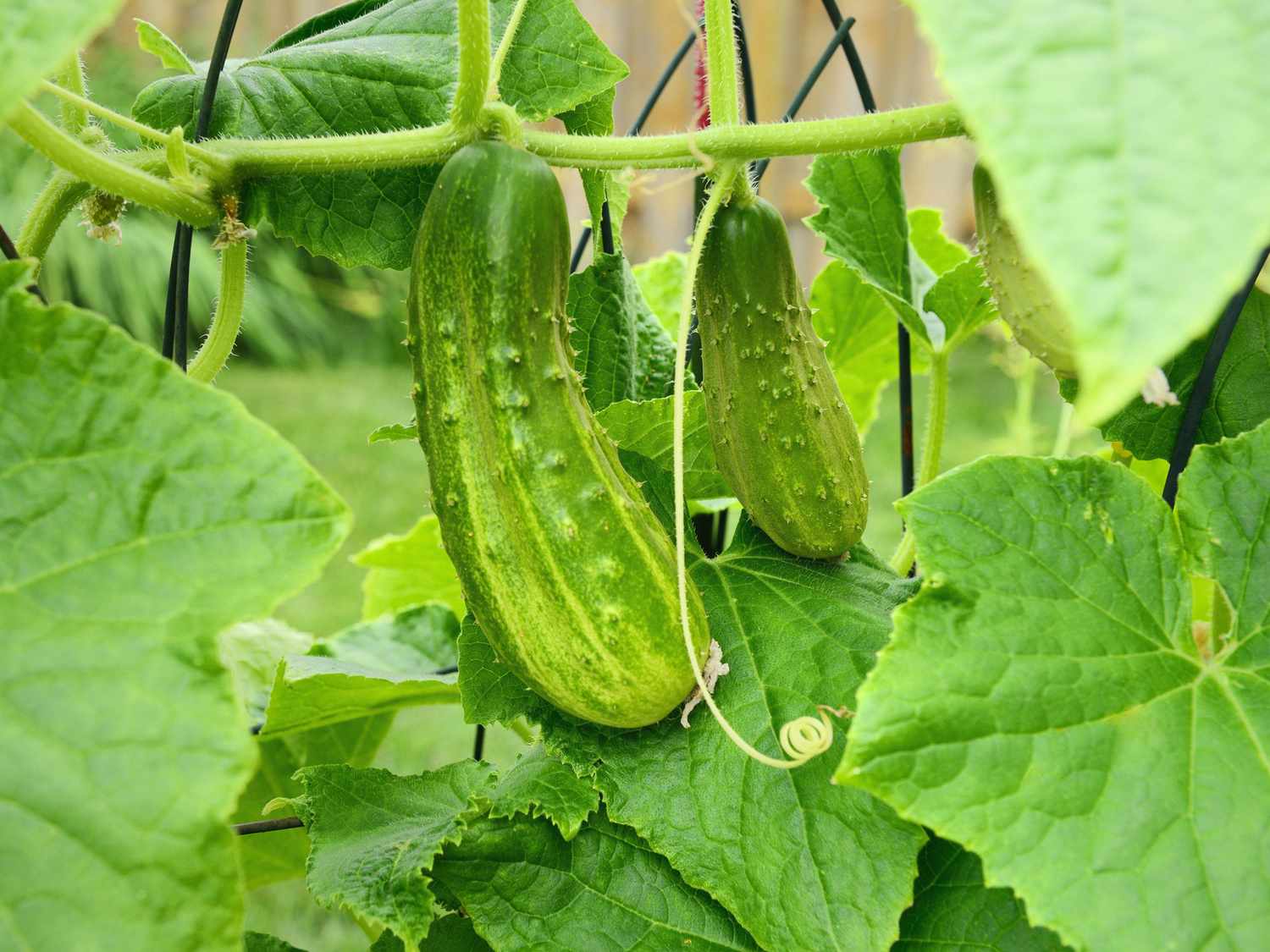

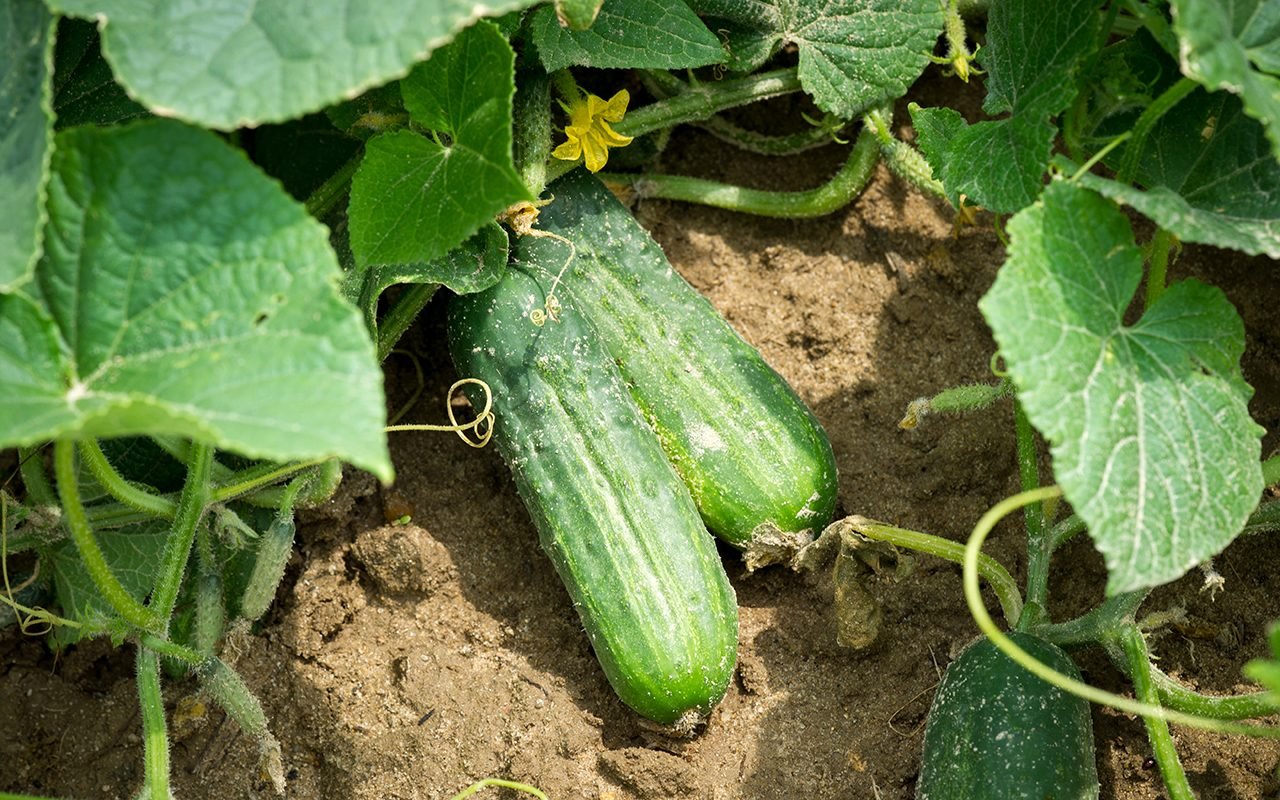

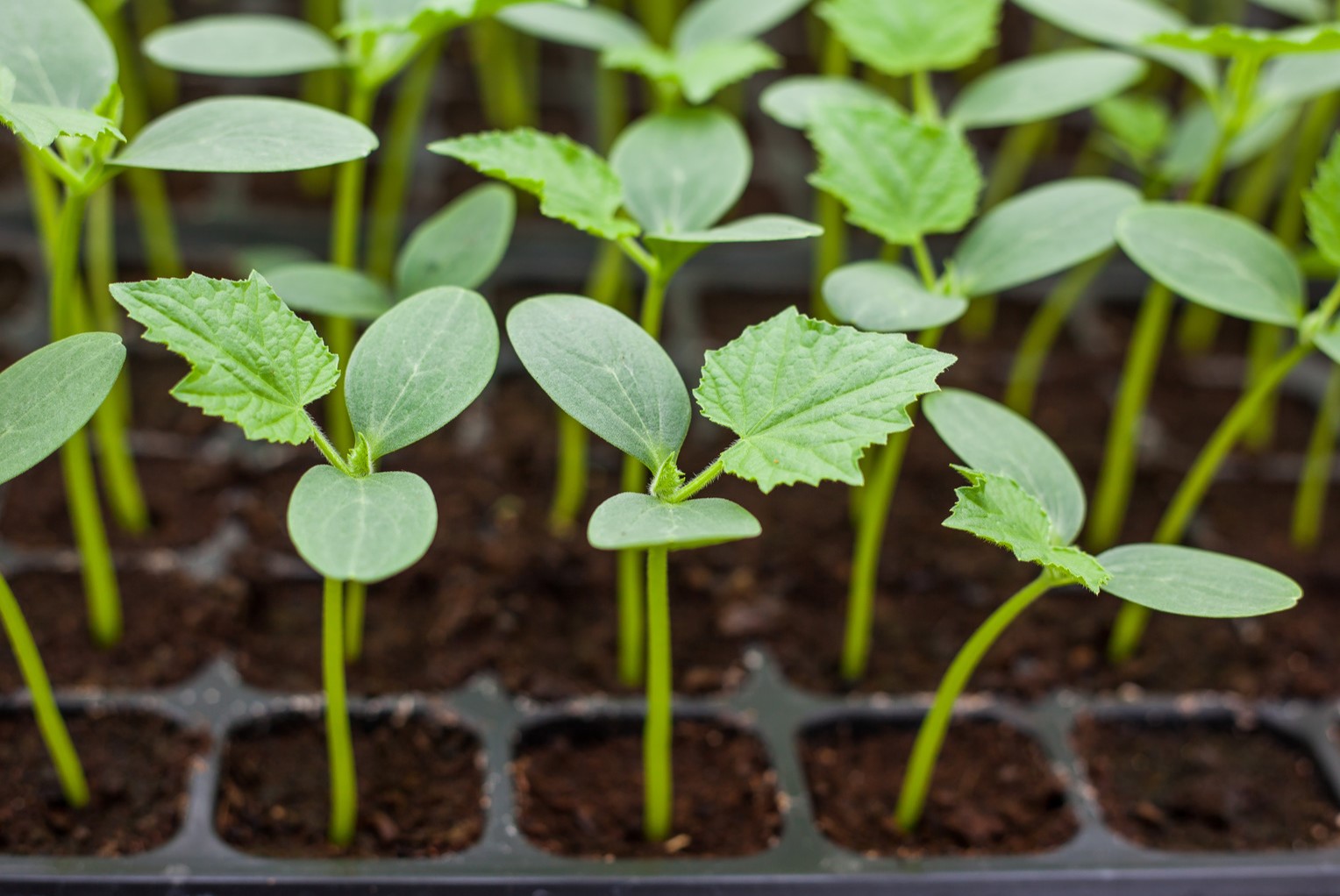


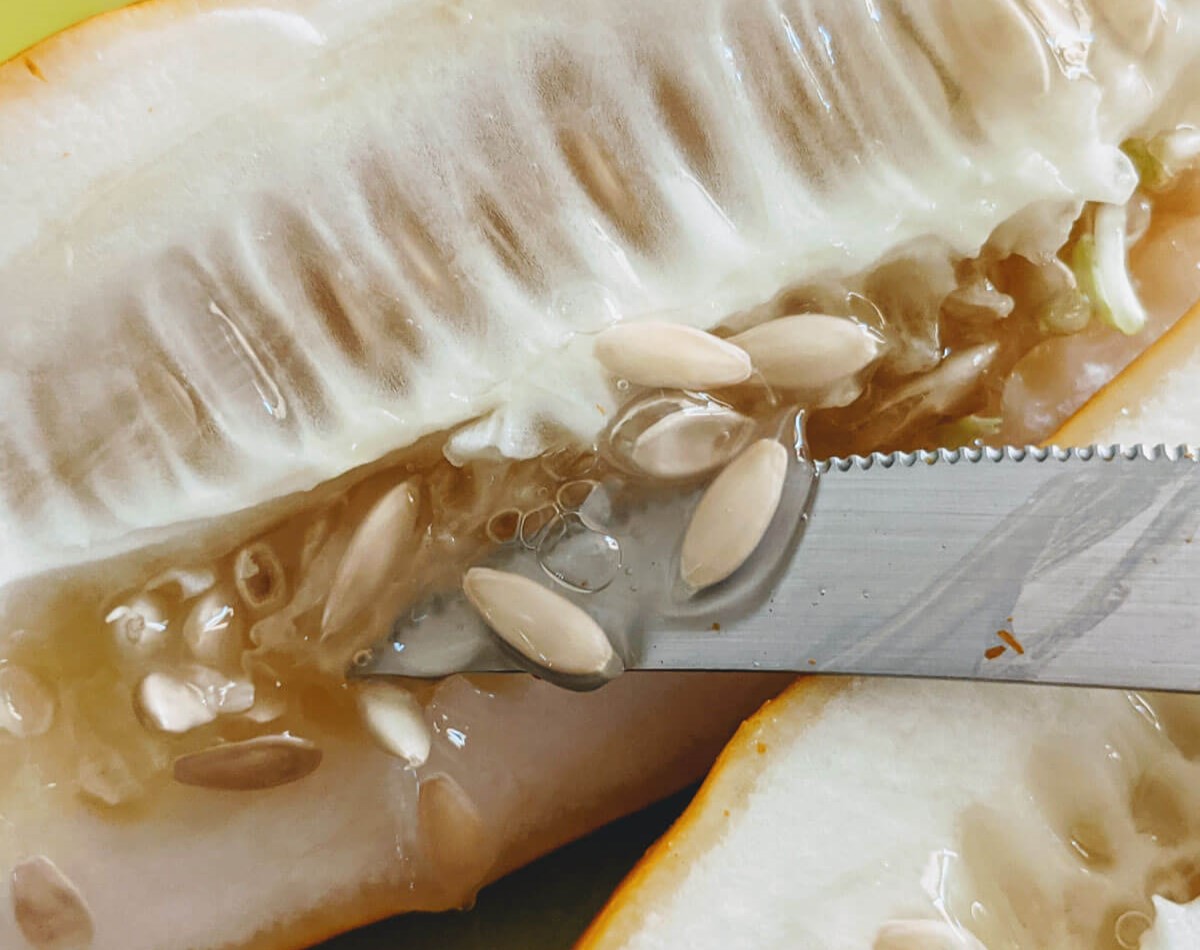
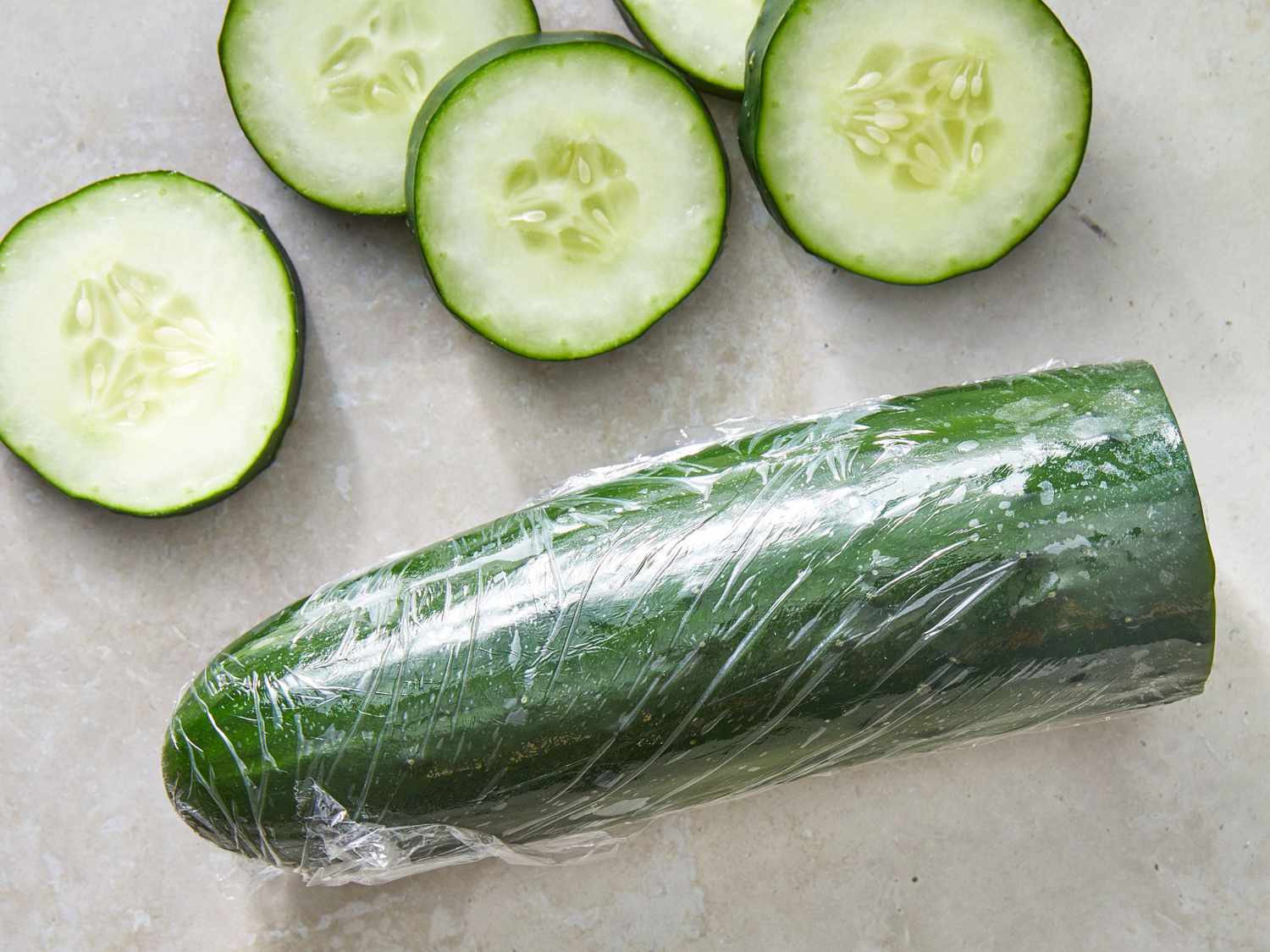
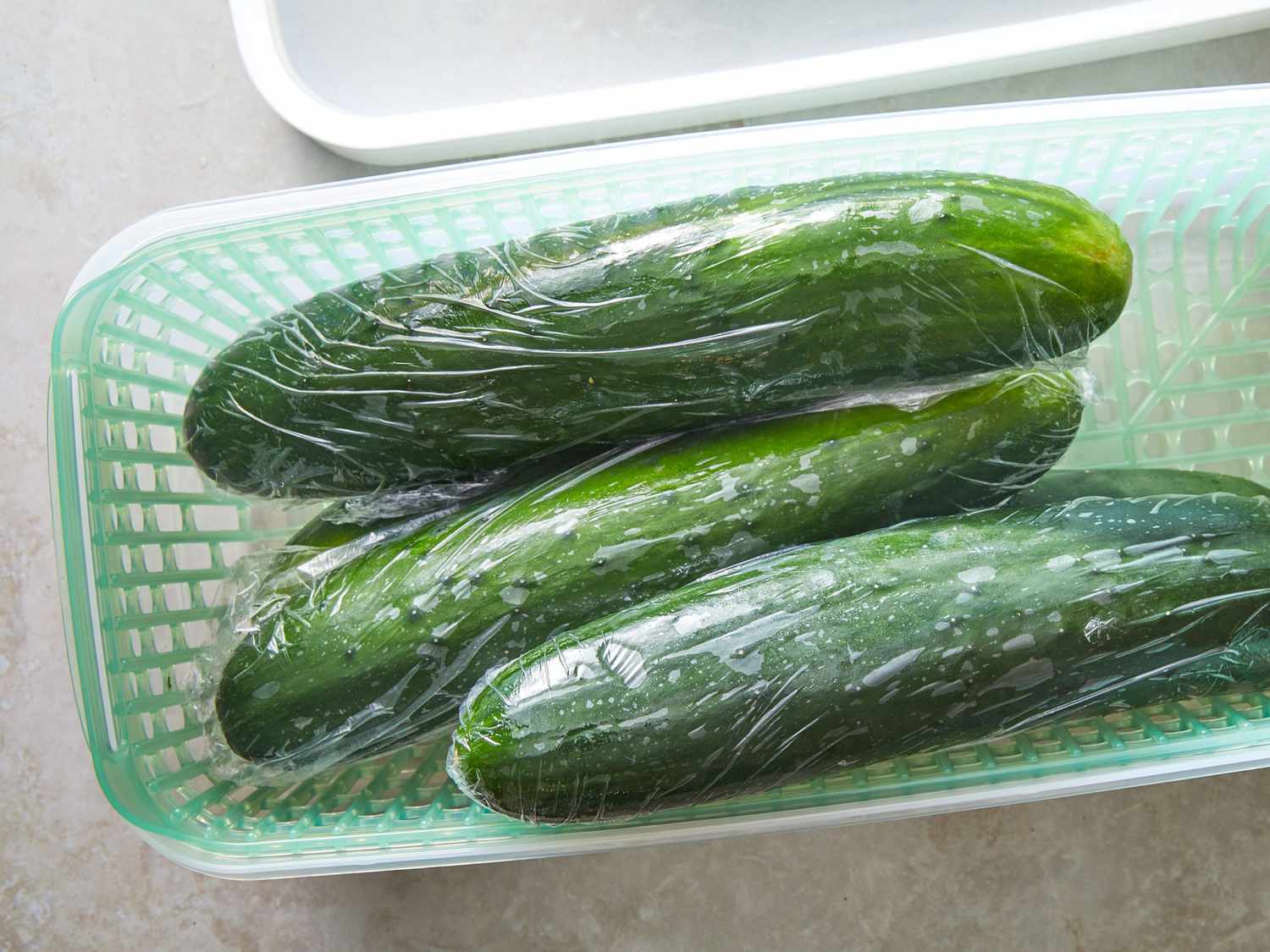

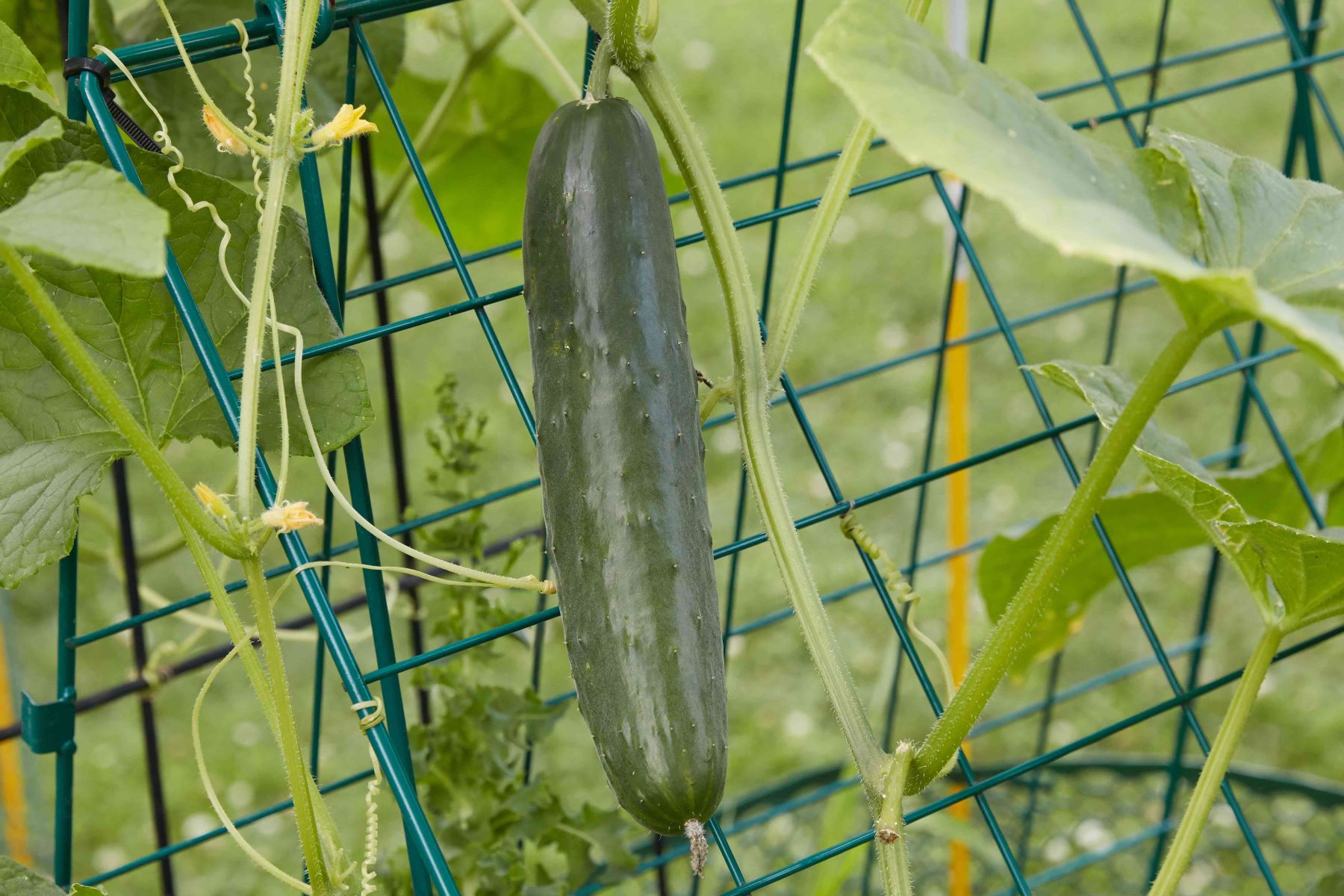
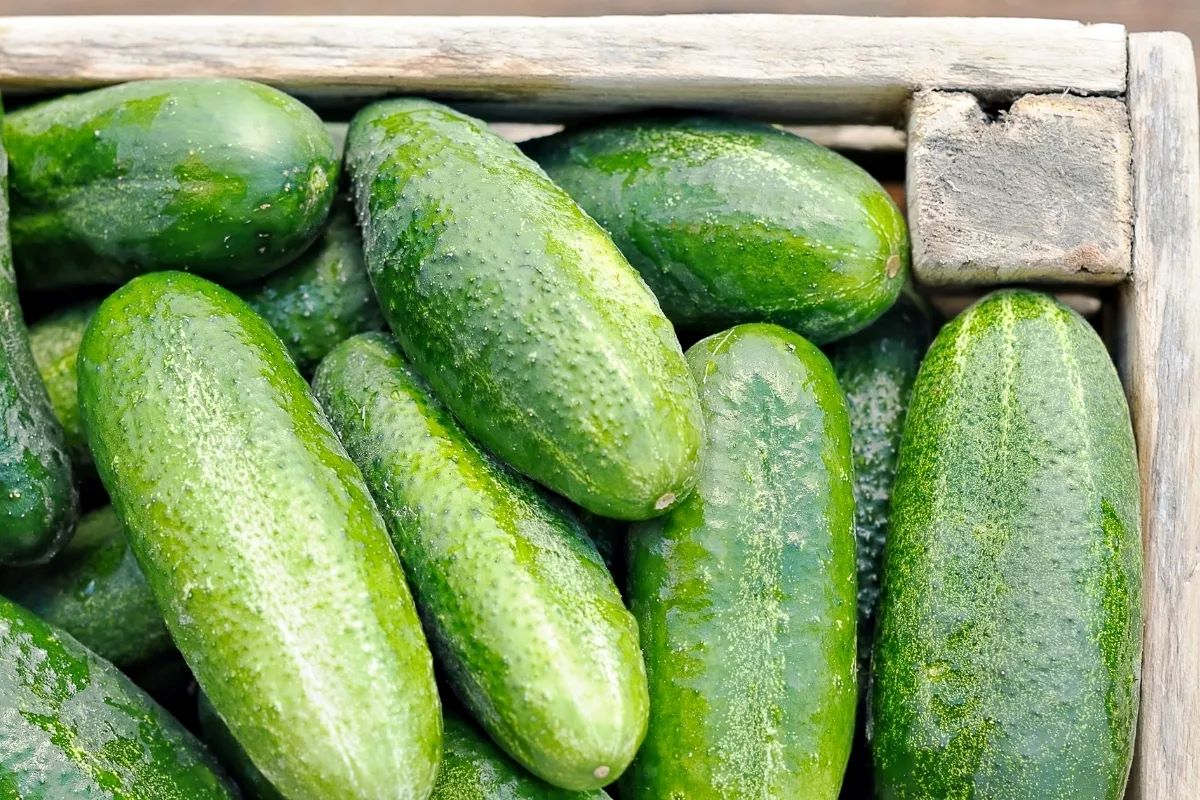

0 thoughts on “What To Do With Cucumbers From The Garden”